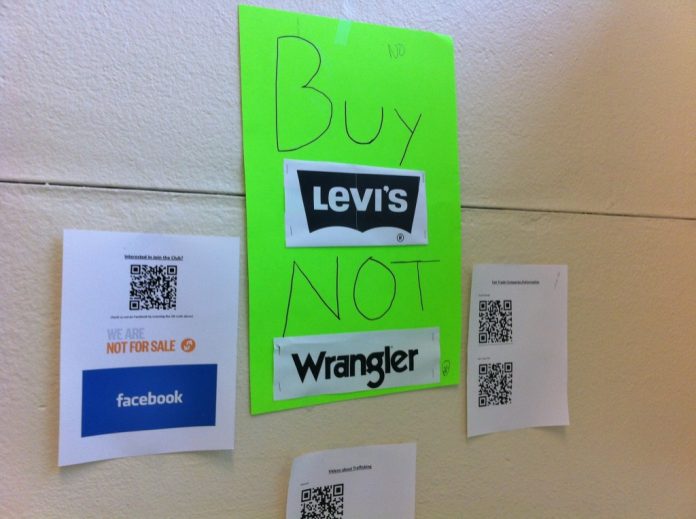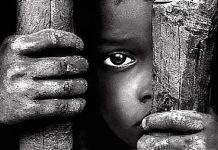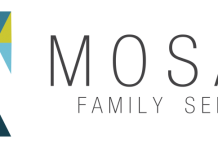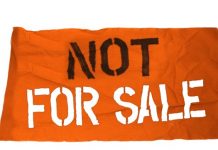Starting on Friday March 1, The Not For Sale Club, led by Katherine Guinn, officially started its poster campaign to boost the awareness of how prevalent human trafficking is in our society. QR codes (barcode looking squares) and posters have been posted in areas such as the counseling wing and the cafeteria for passing students to read and reflect on.
By displaying these posters and codes, the Not For Sale club seeks to show students that they have a voice, that it’s not hard to make ethical choices when they buy products, and that they can make an impact on the cruel human trafficking and coercive labor industries.
The posters show images of two logos from companies that produce the same products, but they differ in their labor sources: one company utilizes human trafficking and slave labor and the other does not. For example, one poster above the bench near the Math lab advises to purchase Patagonia products instead of products from The North face because Patagonia uses “fair labor practices whereas The North Face doesn’t” explained Guinn.
These products cost about the same and offer similar functionality, and since these companies compete in the same market, choosing to purchase a Patagonia will cause The North Face to lose business. Basically the idea behind this is to reward companies that use fair labor, and to do a semi-boycott on companies that don’t.
There are currently 27 million people living as modern slaves and 12.3 million being forced into labor. Many of these people, some of them children, work in factories to produce products, intended to be sold in first-world countries like ours. “The best example of this that people are familiar with is Foxconn,” remarked Will Wood ’13. Foxconn, a design manufacturer currently producing many popular Apple and Samsung products, employs people practically as slave labor.
Last year Chinese workers in Foxconn plants weren’t being paid a livable wage, and were forced to live on site. These workers were forced to work under their contracts, resulting in many attempting suicide, which made Foxconn install nets to catch suicidal workers. “This really needs to stop” commented Will Brown ’13, “we can make a difference by buying with knowledge.” The Not For Sale Club seeks to change this.
Although you can’t make a difference in the human trafficking and coercive labor industries today or even tomorrow, through continually choosing to purchase products from companies with fair labor practices instead of those without, you have an impact. So next time you walk through the halls, take a minute out of your day to stop and look at one of their posters and save a link from a QR code for later. The Not For Sale Club will continue to fight this horrible injustice as long as it continues to exist, and you can too.






